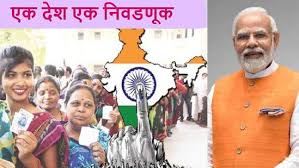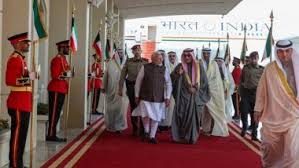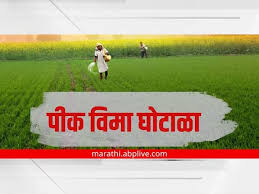
The government can present the One Nation One Election Bill in this session of Parliament
New Delhi: The central government can present the 'One Nation, One Election' bill during the winter session or budget session of Parliament. This bill can be sent to the Joint Parliamentary Committee (JPC). The report of the Ramnath Kovind Committee on One Country, One Election has already been approved by the Modi Cabinet. The government wants a consensus on this bill. Therefore, discussions should be held with all stakeholders. Therefore, the JPC will discuss the One Nation One Election Bill with representatives of all political parties. The government hopes that a consensus will be reached on this bill.
'One Country, One Election' is among the priorities of the Modi government. Prime Minister Narendra Modi had promised 'One Nation One Election'. The Modi cabinet approved the 'One Nation One Election' proposal on 18 September.
What are the arguments of the government and the opposition regarding One Nation One Election?
The government has been insisting on holding simultaneous elections for some time now. The government argues that the current election system is wasting time, money and workforce. The model code of conduct announced before the elections puts a break on development work. Holding simultaneous elections will save time, money and workforce. Development work can be completed without interruption.
While, the opposition has termed these arguments of the government as impractical. Opposition parties have pointed to the logistical challenges faced by the Election Commission in conducting elections in the state.
The Kovind Committee was formed on 2 September 2023
A committee was formed under the chairmanship of former President Ram Nath Kovind to decide the process of One Nation One Election, it had 8 members. The Kovind Committee was formed on 2 September 2023. The committee submitted its report to President Draupadi Murmu on 14 March. The committee has suggested to extend the term of all the assemblies till 2029.
What suggestions did the Kovind Committee give?
-The Kovind Committee suggested that the term of all the state assemblies be extended till the next Lok Sabha elections i.e. 2029.
-In the first phase, Lok Sabha-Assembly elections can be held simultaneously. In the second phase, civic elections can be held within 100 days.
-In case of hung assembly, no confidence motion, fresh elections can be held for the remaining 5-year term.
-The Election Commission can prepare a single voter list and voter ID card for Lok Sabha, Assembly, local body elections in consultation with the state election officers.
-The Kovind panel has also recommended advance planning of devices, manpower and security force for conducting simultaneous elections.
The Cabinet approved the report of the Kovind Committee, know the developments so far on simultaneous elections
Who all are in the Kovind Committee?
A committee was formed on 2 September 2023 under the chairmanship of former President Ram Nath Kovind to consider One Nation One Election. Kovind's committee has 8 members including Home Minister Amit Shah, former MP Ghulam Nabi Azad, well-known lawyer Harish Salve, Congress leader Adhir Ranjan Chowdhary, former chairman of the 15th Finance Commission NK Singh, political scientist Subhash Kashyap, former Central Vigilance Commissioner (CVC) Sanjay Kothari. Union Law Minister Arjun Ram Meghwal has been made a special member of the committee.
How was the report prepared?
The committee contacted 62 political parties for this. Of these, 32 parties supported One Nation One Election. At the same time, 15 parties opposed it. While there were also 15 such parties who did not respond. After 191 days of research, the committee submitted its report to President Draupadi Murmu on 14 March. The committee's report is 18 thousand 626 pages long.
The winter session of Parliament will run from 25 November to 20 December, One Nation One Election Bill can be passed
Which reference was taken from which countries?
-For One Nation One Election, the constitution of many countries was analyzed. The Kovind Committee studied the election process of Sweden, Japan, Germany, South Africa, Belgium, Philippines, Indonesia.
-In South Africa, Lok Sabha and Vidhan Sabha elections will be held in May next year. Whereas Sweden adopts the Proportional Electoral System for the election process.
-Talking about Germany and Japan, here the PM is selected first, then the rest of the elections are held.
-Similarly, in Indonesia too, the elections of the President and Vice President are held together.
Which parties are ready for One Nation One Election?
BJP, Nitish Kumar's JDU, Telugu Desam Party (TDP), Chirag Paswan's LJP have supported One Nation One Election. Along with this, Assam Gana Parishad, Mayawati's Bahujan Samaj Party (BSP) and Shiv Sena (Shinde) faction have also supported One Nation One Election.
Which parties opposed?
The biggest party opposing One Nation One Election is Congress. Apart from this, 15 parties including Samajwadi Party (SP), Aam Aadmi Party (AAP), CPM (CPM) were against it. While 15 parties including Jharkhand Mukti Morcha (JMM), Indian Union Muslim League (IUML) did not give any answer on One Nation One Election.
New Delhi: The central government can present the 'One Nation, One Election' bill during the winter session or budget session of Parliament. This bill can be sent to the Joint Parliamentary Committee (JPC). The report of the Ramnath Kovind Committee on One Country, One Election has already been approved by the Modi Cabinet. The government wants a consensus on this bill. Therefore, discussions should be held with all stakeholders. Therefore, the JPC will discuss the One Nation One Election Bill with representatives of all political parties. The government hopes that a consensus will be reached on this bill.
'One Country, One Election' is among the priorities of the Modi government. Prime Minister Narendra Modi had promised 'One Nation One Election'. The Modi cabinet approved the 'One Nation One Election' proposal on 18 September.
What are the arguments of the government and the opposition regarding One Nation One Election?
The government has been insisting on holding simultaneous elections for some time now. The government argues that the current election system is wasting time, money and workforce. The model code of conduct announced before the elections puts a break on development work. Holding simultaneous elections will save time, money and workforce. Development work can be completed without interruption.
While, the opposition has termed these arguments of the government as impractical. Opposition parties have pointed to the logistical challenges faced by the Election Commission in conducting elections in the state.
The Kovind Committee was formed on 2 September 2023
A committee was formed under the chairmanship of former President Ram Nath Kovind to decide the process of One Nation One Election, it had 8 members. The Kovind Committee was formed on 2 September 2023. The committee submitted its report to President Draupadi Murmu on 14 March. The committee has suggested to extend the term of all the assemblies till 2029.
What suggestions did the Kovind Committee give?
-The Kovind Committee suggested that the term of all the state assemblies be extended till the next Lok Sabha elections i.e. 2029.
-In the first phase, Lok Sabha-Assembly elections can be held simultaneously. In the second phase, civic elections can be held within 100 days.
-In case of hung assembly, no confidence motion, fresh elections can be held for the remaining 5-year term.
-The Election Commission can prepare a single voter list and voter ID card for Lok Sabha, Assembly, local body elections in consultation with the state election officers.
-The Kovind panel has also recommended advance planning of devices, manpower and security force for conducting simultaneous elections.
The Cabinet approved the report of the Kovind Committee, know the developments so far on simultaneous elections
Who all are in the Kovind Committee?
A committee was formed on 2 September 2023 under the chairmanship of former President Ram Nath Kovind to consider One Nation One Election. Kovind's committee has 8 members including Home Minister Amit Shah, former MP Ghulam Nabi Azad, well-known lawyer Harish Salve, Congress leader Adhir Ranjan Chowdhary, former chairman of the 15th Finance Commission NK Singh, political scientist Subhash Kashyap, former Central Vigilance Commissioner (CVC) Sanjay Kothari. Union Law Minister Arjun Ram Meghwal has been made a special member of the committee.
How was the report prepared?
The committee contacted 62 political parties for this. Of these, 32 parties supported One Nation One Election. At the same time, 15 parties opposed it. While there were also 15 such parties who did not respond. After 191 days of research, the committee submitted its report to President Draupadi Murmu on 14 March. The committee's report is 18 thousand 626 pages long.
The winter session of Parliament will run from 25 November to 20 December, One Nation One Election Bill can be passed
Which reference was taken from which countries?
-For One Nation One Election, the constitution of many countries was analyzed. The Kovind Committee studied the election process of Sweden, Japan, Germany, South Africa, Belgium, Philippines, Indonesia.
-In South Africa, Lok Sabha and Vidhan Sabha elections will be held in May next year. Whereas Sweden adopts the Proportional Electoral System for the election process.
-Talking about Germany and Japan, here the PM is selected first, then the rest of the elections are held.
-Similarly, in Indonesia too, the elections of the President and Vice President are held together.
Which parties are ready for One Nation One Election?
BJP, Nitish Kumar's JDU, Telugu Desam Party (TDP), Chirag Paswan's LJP have supported One Nation One Election. Along with this, Assam Gana Parishad, Mayawati's Bahujan Samaj Party (BSP) and Shiv Sena (Shinde) faction have also supported One Nation One Election.
Which parties opposed?
The biggest party opposing One Nation One Election is Congress. Apart from this, 15 parties including Samajwadi Party (SP), Aam Aadmi Party (AAP), CPM (CPM) were against it. While 15 parties including Jharkhand Mukti Morcha (JMM), Indian Union Muslim League (IUML) did not give any answer on One Nation One Election.
'One Country, One Election' is among the priorities of the Modi government. Prime Minister Narendra Modi had promised 'One Nation One Election'. The Modi cabinet approved the 'One Nation One Election' proposal on 18 September.
What are the arguments of the government and the opposition regarding One Nation One Election?
The government has been insisting on holding simultaneous elections for some time now. The government argues that the current election system is wasting time, money and workforce. The model code of conduct announced before the elections puts a break on development work. Holding simultaneous elections will save time, money and workforce. Development work can be completed without interruption.
While, the opposition has termed these arguments of the government as impractical. Opposition parties have pointed to the logistical challenges faced by the Election Commission in conducting elections in the state.
The Kovind Committee was formed on 2 September 2023
A committee was formed under the chairmanship of former President Ram Nath Kovind to decide the process of One Nation One Election, it had 8 members. The Kovind Committee was formed on 2 September 2023. The committee submitted its report to President Draupadi Murmu on 14 March. The committee has suggested to extend the term of all the assemblies till 2029.
What suggestions did the Kovind Committee give?
-The Kovind Committee suggested that the term of all the state assemblies be extended till the next Lok Sabha elections i.e. 2029.
-In the first phase, Lok Sabha-Assembly elections can be held simultaneously. In the second phase, civic elections can be held within 100 days.
-In case of hung assembly, no confidence motion, fresh elections can be held for the remaining 5-year term.
-The Election Commission can prepare a single voter list and voter ID card for Lok Sabha, Assembly, local body elections in consultation with the state election officers.
-The Kovind panel has also recommended advance planning of devices, manpower and security force for conducting simultaneous elections.
The Cabinet approved the report of the Kovind Committee, know the developments so far on simultaneous elections
Who all are in the Kovind Committee?
A committee was formed on 2 September 2023 under the chairmanship of former President Ram Nath Kovind to consider One Nation One Election. Kovind's committee has 8 members including Home Minister Amit Shah, former MP Ghulam Nabi Azad, well-known lawyer Harish Salve, Congress leader Adhir Ranjan Chowdhary, former chairman of the 15th Finance Commission NK Singh, political scientist Subhash Kashyap, former Central Vigilance Commissioner (CVC) Sanjay Kothari. Union Law Minister Arjun Ram Meghwal has been made a special member of the committee.
How was the report prepared?
The committee contacted 62 political parties for this. Of these, 32 parties supported One Nation One Election. At the same time, 15 parties opposed it. While there were also 15 such parties who did not respond. After 191 days of research, the committee submitted its report to President Draupadi Murmu on 14 March. The committee's report is 18 thousand 626 pages long.
The winter session of Parliament will run from 25 November to 20 December, One Nation One Election Bill can be passed
Which reference was taken from which countries?
-For One Nation One Election, the constitution of many countries was analyzed. The Kovind Committee studied the election process of Sweden, Japan, Germany, South Africa, Belgium, Philippines, Indonesia.
-In South Africa, Lok Sabha and Vidhan Sabha elections will be held in May next year. Whereas Sweden adopts the Proportional Electoral System for the election process.
-Talking about Germany and Japan, here the PM is selected first, then the rest of the elections are held.
-Similarly, in Indonesia too, the elections of the President and Vice President are held together.
Which parties are ready for One Nation One Election?
BJP, Nitish Kumar's JDU, Telugu Desam Party (TDP), Chirag Paswan's LJP have supported One Nation One Election. Along with this, Assam Gana Parishad, Mayawati's Bahujan Samaj Party (BSP) and Shiv Sena (Shinde) faction have also supported One Nation One Election.
Which parties opposed?
The biggest party opposing One Nation One Election is Congress. Apart from this, 15 parties including Samajwadi Party (SP), Aam Aadmi Party (AAP), CPM (CPM) were against it. While 15 parties including Jharkhand Mukti Morcha (JMM), Indian Union Muslim League (IUML) did not give any answer on One Nation One Election.

.jpg)
















